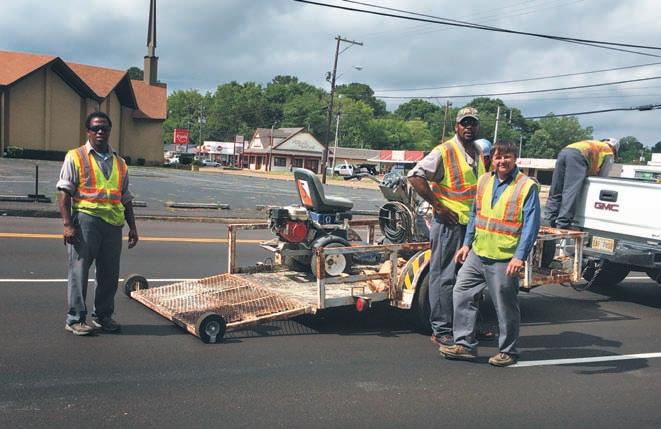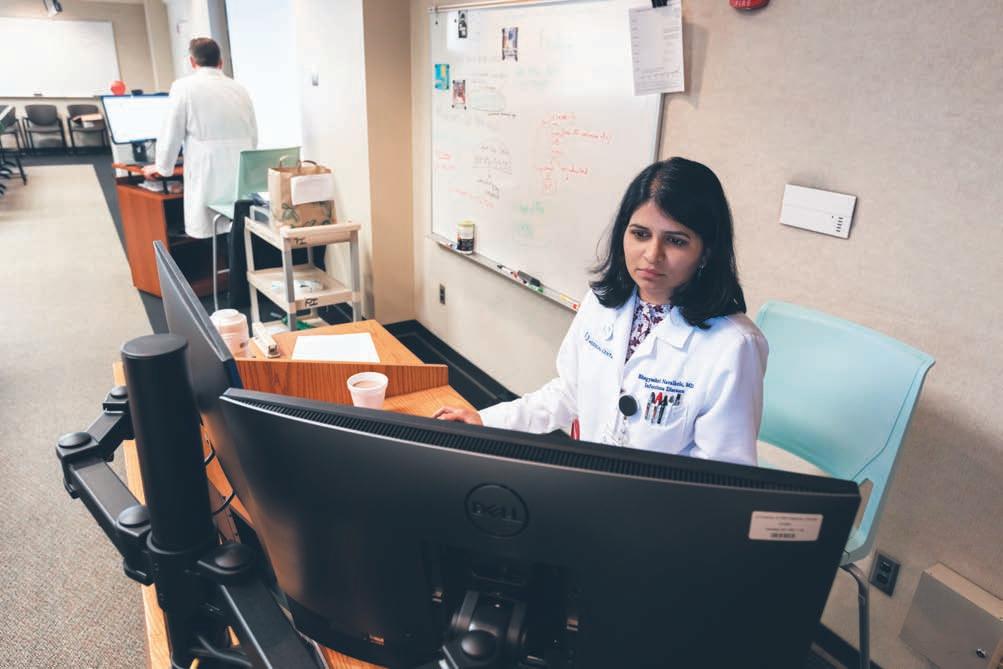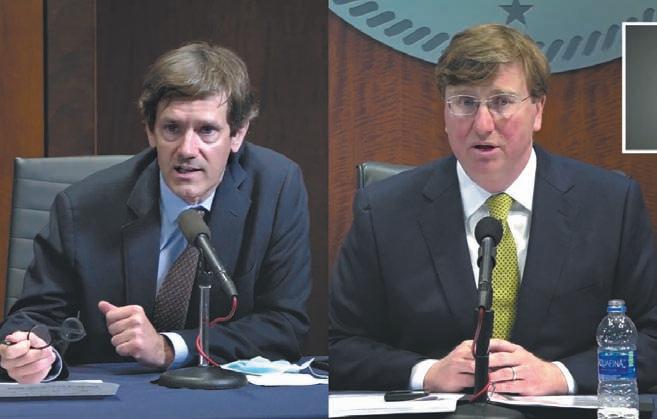cu l
storytelling & re, ir tu
“[W]e continue to develop a plan that maintains the integrity of our elections, focuses on the wellbeing of our citizens and upholds Mississippi’s steadfast conservative values.” — Secretary of State MIchael Watson
TALK JXN
@jxnfreepress
@jacksonfreepress
@jxnfreepress
COVID-19: UMMC Expert on Emerging Knowledge of the Virus
ce eren rev
More Than Respiratory Disease The most concerning development in the scientific understanding of COVID19 is that the virus is far more complicated than the respiratory disease it initially presented as. “It can basically infect each and every organ system,” Navalkele said. “Initially, the thought was it’s going to be respiratory symptoms, something just like flu,” Navalkele explained. “But now that we have seen so many infections, it’s clear that a multi-system organ infection can occur. You can have pneumonia. You can have a heart infection. There have been a lot of patients who have had their kidneys
courtesy UMMC
I
n March, Dr. Bhagyashri Navalkele watched the crowds gathering on America’s beaches during spring break with a heavy weight on her shoulders. Mardi Gras came and went, crowds swelling in the French Quarter of New Orleans, and the consequences of that event and others were not lost on her two months after she began to prepare for the coming catastrophe. “It was extremely concerning,” Navalkele said in a May 21 phone interview with the Jackson Free Press. Navalkele is the medical director of infection prevention and control at the University of Mississippi Medical Center. By Christmas last year, the “virus of unknown origin” had caught her eye, then mostly contained in China’s Hubei province. It would not be long into 2020 before the gravity of the disease dawned on Navalkele. By the end of January, the UMMC staff was already anticipating what the crisis would look like when it finally hit the Magnolia State. “On January 27, we started to do education for our employees and our staff ... providing them with what we knew about the virus so far, and what measures could prevent exposure,” Navalkele said. In the time since, Navalkele and the rest of UMMC’s infectious diseases team have been working to understand the virus and how to arrest its spread across the state and the globe. They’ve learned a lot.
by Nick Judin Dr. Bhagyashri Navalkele, medical director of infection prevention and control at the University of Mississippi Medical Center, was studying COVID-19 well before it arrived in Mississippi. She says our understanding of the virus—and how to prevent its transmission—has changed.
damaged … brain infection has occurred as well. It can be mild, moderate, severe, and it can be a fatal disease as well.” Those complications are not limited to the immunocompromised and elderly. Just as with the classic examples of influenza pandemics, young and healthy individuals might be experiencing a paradoxically dangerous reaction to the virus: a cytokine storm, the term for an excessive response from the body’s immune system. Others can suffer from multi-system inflammatory disease (MIS-C), a rare complication that may follow a pediatric COVID-19 infection. State Health Officer Dr. Thomas Dobbs confirmed the first case of COVID19 related MIS-C in Mississippi on May 19. The central Mississippi child affected was released from the hospital shortly afterward, and is expected to recover. With a greater understanding of the way the novel coronavirus manifests comes
a stronger awareness of what symptoms can herald an infection. “Four months ago, it was fever, cough or shortness of breath,” Navalkele said. “But now the spectrum of symptoms have really changed. Basically anybody who might even have a headache, or certain other minor symptoms—it could be chills, it could be (muscle pain).” No Evidence of Summer Drop More worrisome is the emerging data on the environmental factors many thought would lead to a reduction in cases over the summer. Seasonal infections of the flu ebb with the summer heat, and initially many observers expected a drop-off in infections as the year progressed, potentially culminating in another rising curve in the fall. For Mississippi, at least, May has brought no evidence of a vanishing disease:. Instead, the virus spreads steadily with over 250 new cases a day, an extended plateau
that Navalkele warns may continue even into the year’s hottest months. “On a global level, we saw that the disease started in China and spread across the Northern and Southern hemisphere,” Navalkele said. “So it gives the idea that it can spread irrespective of the season. Initially, the concern was that it’s going to be just during the winter season, then it’s going to die down. But the fact that it’s there in both hemispheres makes you wonder. It’s not really limited to any seasonality, but it’s more of the human-to-human transmission, which is playing a big role here.” Dr. Chad J. Roy, a microbiologist at Tulane University, described an experiment on the novel coronavirus’ durability and infectiousness to Wired magazine. In the experiment, aerosolized particles of SARS-CoV-2, the coronavirus that causes the disease known as COVID-19, were COVID-19: EMERGING, p 8
May 27 - June 9, 2020 • jfp.ms
news,
7







